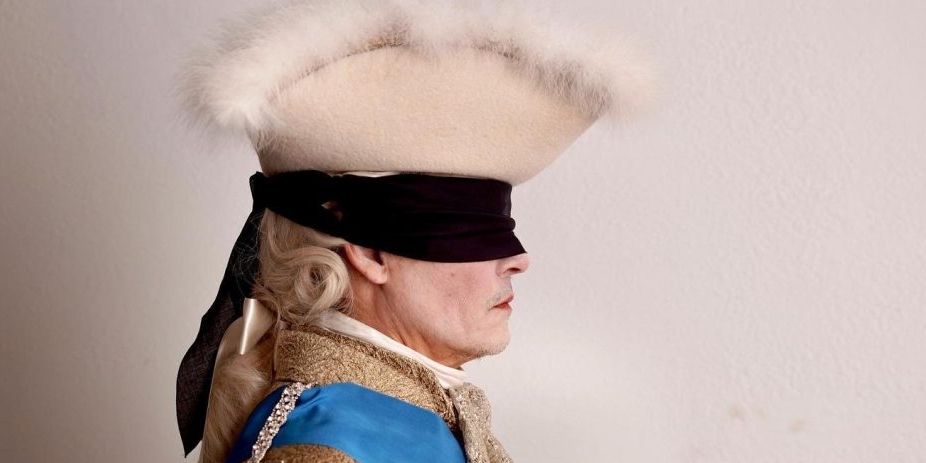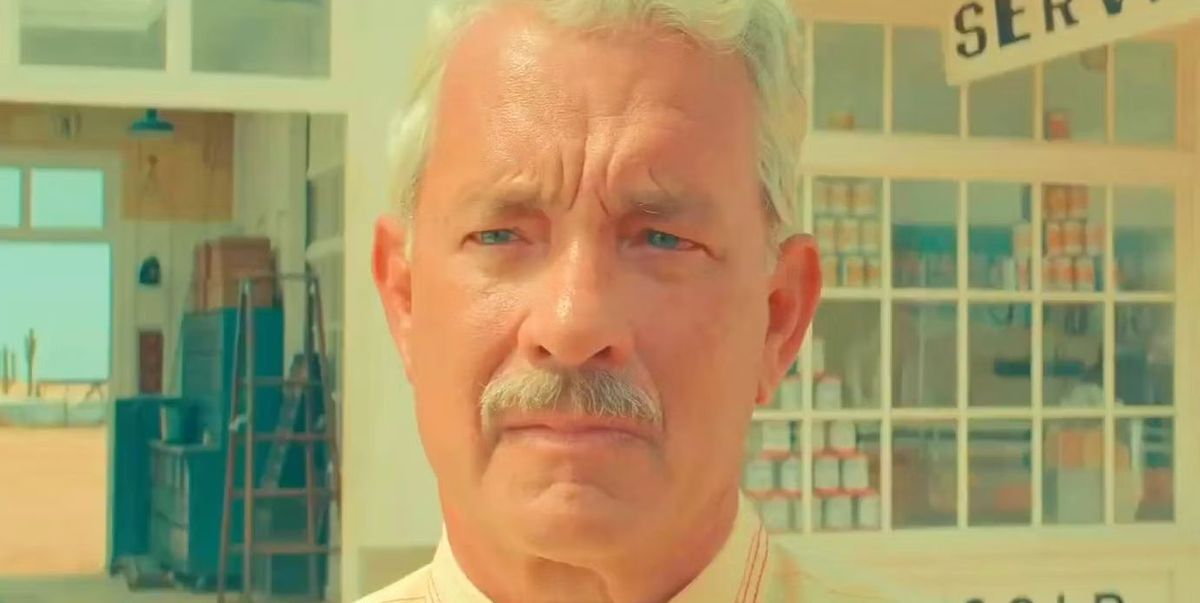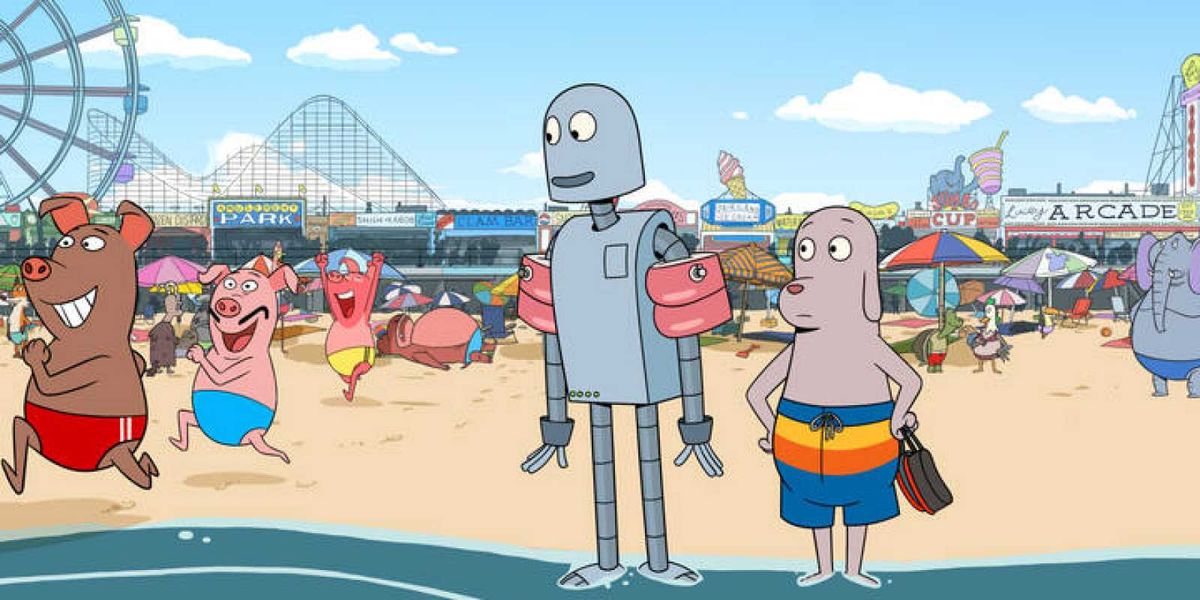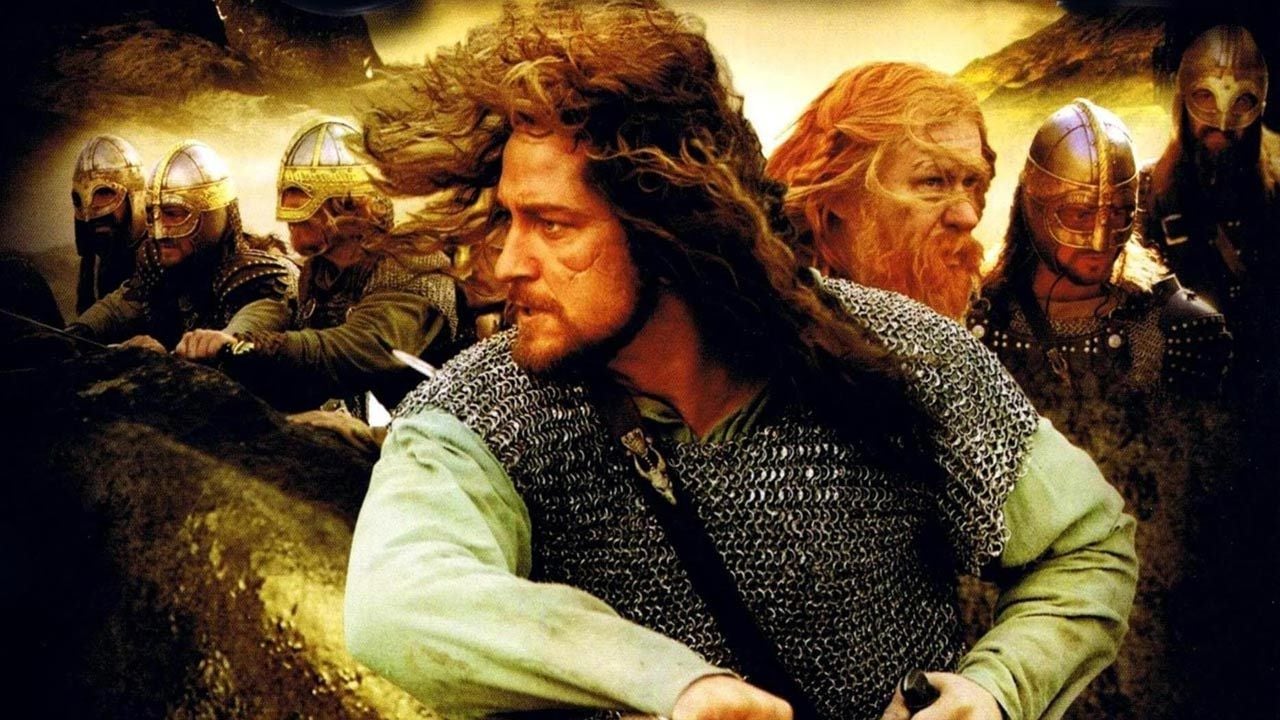Johnny Depp is Louis XV in ‘Jean du Barry’, Maïwenn’s film that celebrates the rebelliousness and modernity of a courtesan in 18th century Versailles.
Tradition and modernity duel in the very correct ‘Jean Du Barry’, the new film by the French Maïwenn, responsible for energetic and strident titles such as ‘Polisse’ and ‘My love’. The tradition comes hand in hand with the filmmaker’s adherence to the conventions of historical drama, from the use of a literary voice-over to the delight in bucolic landscapes and palatial interiors. Far from the eccentric looks at the past of films like ‘The Favourite’ by Yorgos Lanthimos or ‘The Rebel Empress’ by Marie Kreutzer –in which the past was reflected on the present through anachronisms–, ‘Jean Du Barry’ avoids the out of tone. This lack of stylistic fuss could be seen as a concession to academicism; However, there is another possible reading for Maïwenn’s commitment to filmic orthodoxy: who needs spectacular artifice and narrative puns when you have a story as extraordinary as that of Jean Du Barry, who became the most powerful Versailles, the king’s favourite, after living in harsh marginality?
‘Jean Du Barry’ has given the go-ahead to a Cannes Film Festival in which numerous films directed by women will be seen, from Alice Rohwacher to Justine Triet, passing through Jessica Hausner or Catherine Breillat. And it should be noted that reflection on the female experience plays an essential role in Maïwenn’s new film, which vindicates the modernity of the most famous mistress of King Louis XV. The film shows, for example, the transgressive spirit that led Jean to walk through the court dressed in men’s clothing or to attend gala dinners with her hair blowing in the wind. In this sense, ‘Jean Du Barry’ offers a tale of female empowerment at the heart of a severely patriarchal world. However, Maïwenn is not seduced by the idea of making a thesis film and, in parallel to praising the protagonist’s rebellion, the film shows other interesting aspects of Jean’s vicissitudes, beginning with the love story that united it to the king and continuing the struggle for power within Versailles. In its most fortunate passages, in which the always magnetic figure of Marie Antoinette makes an appearance, ‘Jean Du Barry’ works in the manner of Zhang Yimou’s ‘The Red Lantern’ – which portrayed the psychological conflict between the wives of a feudal lord–, although Maïwenn is rather uninterested in the preciousness of the Chinese director.
Conceived as a story of survival, ‘Jean Du Barry’ owes almost all of its luck to the stage presence of Maïwenn herself, who fills the screen with a calculated mix of spontaneity and affectation, of innocence and sophistication. The filmmaker’s fascination with her own figure could be seen as a display of narcissism, but the danger of complacency is diffused thanks to Jean’s nuanced psychological definition, who is as soon as irreverent as she is submissive to the rigid rules of the movie. monarchical universe. A character construction that benefits from the chemistry displayed by Maïwenn and Johnny Depp, who gives life to a self-parodying Louis XV (the character could be seen as a restrained, distinguished and crestfallen version of Jack Sparrow). Seven years ago, the Cannes Film Festival hosted Jean-Pierre Léaud’s fiery, twilight portrayal of the Sun King in Albert Serra’s ‘The Death of Louis XVI’. Now, Maiwenn shows a Well Beloved who, in his old age, surrounded by a circus entourage, was still treated like a child, a grotesque with which Depp seems to laugh at his life of opulence and privilege. This is how ‘Jean Du Barry’ outlines, without major filmic audacity, a historical chronicle that does justice to the complex vital odyssey of its protagonist, a woman who glimpsed the possibility of empowerment but who also savored the tragedy of being ahead of her time.
For fans of historical cinema that does not get entangled in the maze of modernity
The best: the observation of the rituals that marked life in the Versailles of the eighteenth century.
The worst: the little immersion in the privacy of Jean and the king.
DATA SHEET
Address: Maiwenn Distribution: Maiwenn, Johnny Depp, Melvil Poupaud, Pierre Richard, Pascal Greggory Country: France Year: 2023 Release date: 29–9-2023 Gender: Drama Script: Teddy Lussi-Modeste, Maiwenn Duration: 116 min.
Synopsis: Jeanne, a working-class young woman eager for culture and pleasure, uses her intelligence and attractiveness to climb the rungs of the social ladder one by one. She becomes the favorite of King Louis XV, who, unaware of her status as her courtesan, recovers through her her appetite for her life. They fall madly in love. Against all decorum and etiquette, Jeanne moves to Versailles, where her arrival scandalizes the court…

Source: Fotogramas
Emily Jhon is a product and service reviewer at Gossipify, known for her honest evaluations and thorough analysis. With a background in marketing and consumer research, she offers valuable insights to readers. She has been writing for Gossipify for several years and has a degree in Marketing and Consumer Research from the University of Oxford.









